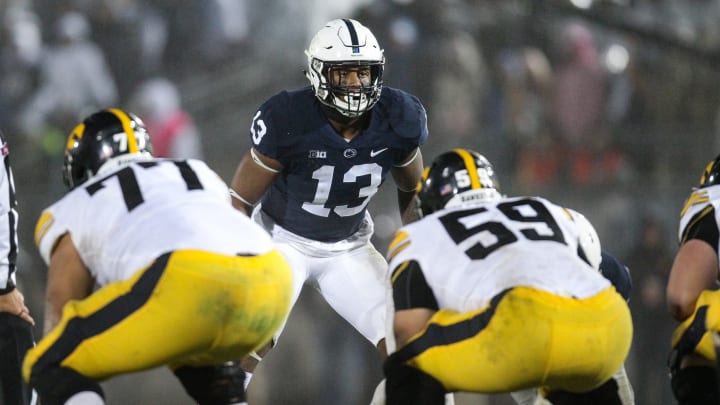How Penn State Players Will Benefit from Name, Image and Likeness Legislation

Penn State linebacker Ellis Brooks wants to start a clothing line. Perhaps next year he can while still playing with the Lions.
"If that comes along, then I'm all for it," Brooks said recently.
The opportunity could come in the form of legislation still being debated. The Senate Judiciary Committee recently held a hearing to discuss a national name, image and likeness bill allowing student-athletes to profit beyond their scholarships.
NCAA President Mark Emmert testified, as did Pittsburgh Athletic Director Heather Lyke, at the hearing, which served as another step toward passing a federal Student-Athlete Equity Act.
The Power 5 conferences released a summary of the proposed act, obtained by Sports Illustrated, that highlighted some of its safeguards and limits. Student-athletes have to complete one semester before pursuing signing any deals and cannot accept payment to attend a specific school.
The NCAA wants to establish a uniform structure for colleges and agents to control the process. Penn State football coach James Franklin and athletic director Sandy Barbour have said they would support name, image and likeness legislation.
"Anything that’s going to be a positive for our student-athletes, we’re supportive of," Franklin said this spring. "To be honest with you, I think pretty much that’s the case all across the country. ... But it’s a lot more complex than what is probably reported a lot of times or things that are discussed. The complexity of making sure that things are staying within the guidelines is the challenge more than anything.
"... The NCAA and the model of amateurism is evolving, and at Penn State we’re going to be supportive of that, like we always do, within the guidelines. But it’s going to be a transition and it’s going to be tricky and there are a lot of things that still need to be worked through."
Name, image and likeness legislation is just part of a growing movement among college athletes to generate more compensation for themselves. A group representing Pac-12 athletes say they will not participate in training camp or games unless administrators agree to a series of demands that include revenue sharing, expanded medical insurance, protection of non-revenue sports and ending "racial injustice in college sports and society."
A press release from the group cites a recent study that places the fair-market value of college football and men's basketball players from $250,312 to $692,868.
In the study, conducted by Ramogi Huma, executive director of the National College Players Association, and Drexel University professor Ellen Staurowsky, Big Ten football players bring an annual fair-market value of $412,099 to their schools, most of any Power 5 conference. ACC men's basketball players carry the highest annual value at $692,868, the study found.
Huma and Staurowksy conducted a similar study in 2012 that found Penn State football players held an annual fair-market value then of $362,210. That translated to $1,341,032 over four years, according to the study.
At the time, the Penn State players' annual fair-market value ranked ninth nationally, according to the study. Texas football players held an annual value of $567,922, the study found.
With NIL legislation, college athletes would be able to tap into that market. The proposed legislation would be of particular benefit to players like Brooks, who aspires to something beyond an endorsement deal.
Brooks, a redshirt junior, said recently that he loves fashion and wants to start a clothing line. Technically, that would be permitted now, but NCAA rules prohibit Brooks from promoting the brand under his name.
The proposed legislation would allow Brooks to brand and promote a fashion line personally, an opportunity he said many student-athletes would like to pursue.
"I actually can finally start one of my passions, which would be really cool," Brooks said. "On top of that, there are a lot of people who deserve it. ... It's been an issue in recent years over how much the school is making compared to what the team is supposed to make. If that comes along, then I'm all for it."
Though student-athletes would be able to sign endorsement deals, Brooks said the bill would encourage new business creation, which he called important.
"I think young entrepreneurs, young businesses, should always be promoted," Brooks said. "And that's really what it is at the end of the day: giving athletes power to use their name, image and likeness to create a business, create revenue for themselves, which helps them throughout their lives. It's not like it's something negative."
According to Sports Illustrated, the bill will start in the Senate Commerce Committee. Five senators are working on the legislation.
Get the latest Penn State news by joining the community. Click "Follow" at the top right of our AllPennState page. Mobile users click the notification bell. And please follow AllPennState on Twitter @MarkWogenrich.
